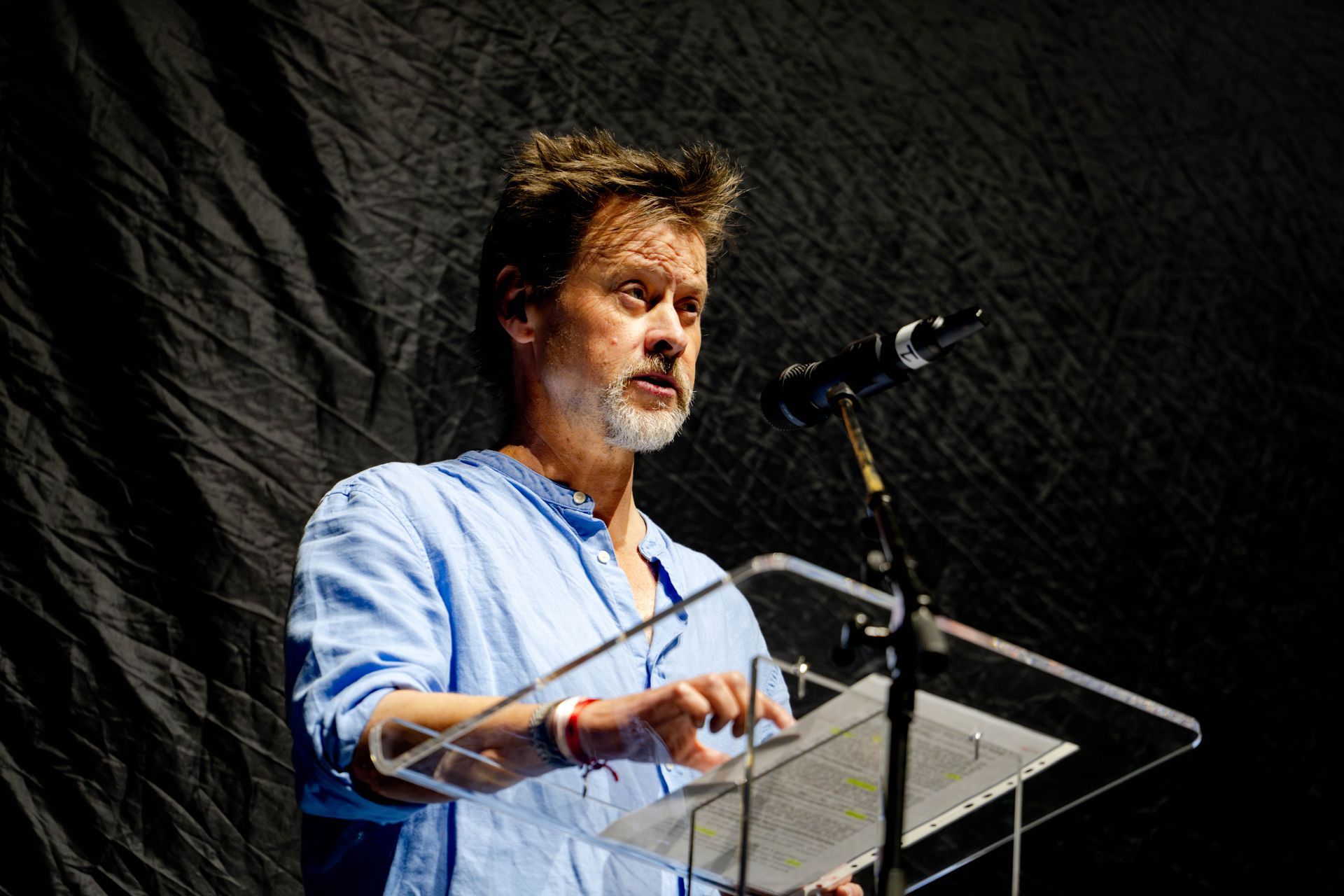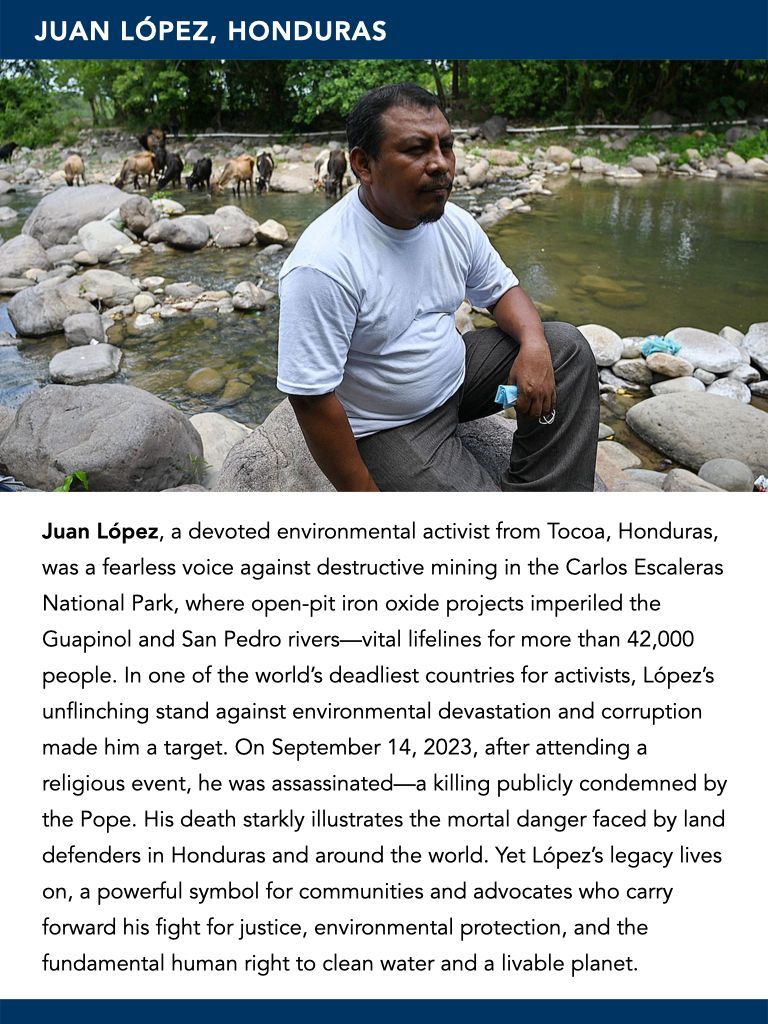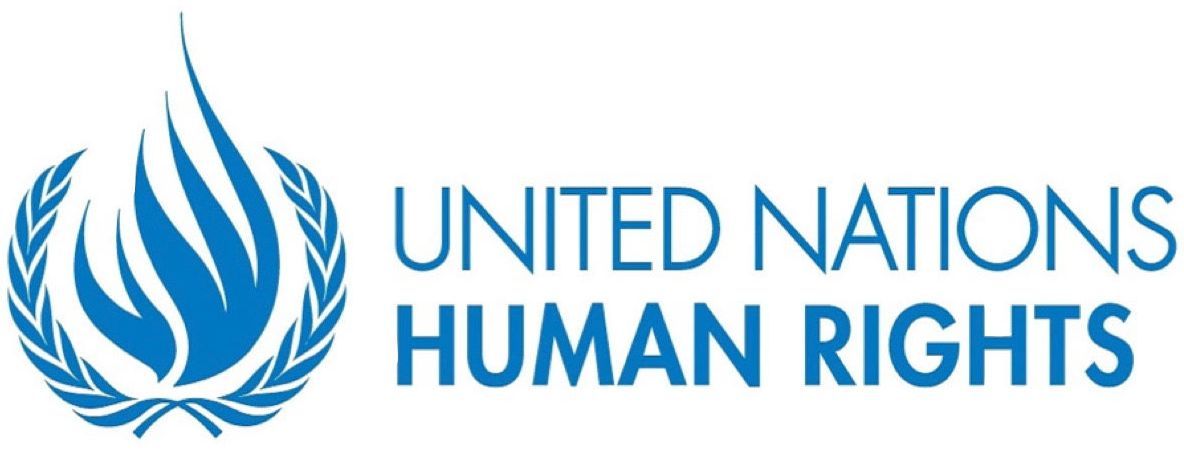ABOUT
Right Here, Right Now Theater (RHRN Theater) harnesses the transformative power of storytelling and performance to ignite both local and global responses to the climate crisis. Through compelling narratives, diverse voices, and performances by emerging and world-renowned actors, RHRN Theater raises awareness, advocates for equitable and sustainable solutions, and inspires urgent action to protect the most vulnerable. By bringing the stories of climate defenders - whose voices are too often silenced - to life on stage, we amplify their calls for justice and ensure they resonate worldwide.
As part of the 2025 Right Here, Right Now Global Climate Summit, RHRN Theater took center stage on June 6 at the historic New Theatre Oxford—presented in partnership with United Nations Human Rights, the University of Oxford, and the Recording Academy.
The evening paid tribute to Climate Champions around the world - those who risk their lives and raise their voices in defense of our planet. Two fallen environmental defenders from Honduras and South Africa were honored through powerful first-person dramatic readings by acclaimed actors Eloise Sheffield and Steve Hay.
Pictured at left, Yellowstone actor Mo Brings Plenty - a direct descendant of Sitting Bull and the warrior Crazy Horse of the Oglala Sioux Nation, delivered a breathtaking performance rooted in the sacred bond between Indigenous wisdom and planetary stewardship. Invoking the ancestral spirit of his people, guardians of the Earth for millennia, he concluded with a haunting Native American prayer that echoed through the theater and left the audience in reverent silence.
These performances set the emotional tone for the evening, culminating in a powerful concert by global music icon and
Climate Champion Ellie Goulding. The theatrical segment was conceived and directed by Gianluca Barbadori, Artistic Director of Right Here, Right Now Theater.
The story of Fikile Ntshangase, a “Climate Champion” from South Africa
ONE FINE DAY by Michele Santeramo
Reading by: Eloise Sheffield
Imagine the oldest nature reserve in Africa. Trees, animals, nature exploding with beauty. And imagine a company that extracts coal from that nature reserve. One fine day this company wants more coal and more money so it demands to expand the mine.
Fikile Ntshangase is about 60 years old and one fine day opens the sink tap and finds that there is no water. She is used to it, it happens often, so she leaves her home and walks towards a water can in which she collects rainwater. She takes some and sees that the rainwater is black. She looks up the roof and finds it full of black dust too. She knows that it is dust from the mine and so in the evening she tells the villagers that it is not good to find black water, that the animals will drink it and eat the grass on which that coal dust has settled, and she tells everyone that she is not happy that those from the mine do what they want, she says that the land belongs to everyone and is useful to everyone, that it must be looked after like one's own home but always kept open for anyone who wants to enter, because she was taught that the world is an open house and anyone should be able to get in.
Fikile Ntshangase begins to attend meetings, talks to people, organizes gatherings and explains to everyone the risks that come from that coal dust and from the presence of the mine. So, in the eyes of the heads of the company that extracts the coal, she becomes a problem.
One fine day, a man stops in front of her home. He does nothing. He just looks at her. Always. Hours and hours. Disturbing. Then, without saying anything, he leaves and another one arrives. He looks at her, hours and hours, always, and then he leaves. And then another, and another… But she is not scared and continues to attend meetings and then one fine day she receives a message: mind your own business so you will live to a hundred years.
But she, Fikile Ntshangase, thinks that the well-being of her land and her people is her business, and she continues to take care of that: she speaks publicly of that dust that will destroy the oldest natural reserve in Africa.
And then one day some men come to her and say: that's enough, you've gone too far, you have to sign a memorandum of understanding with the mining company, then you have to step down from your organization and then, like the good woman you are, you have to leave and never come back. But she, Fikile Ntshangase, just can't leave everything and go away. She simply feels that she's doing the right thing and she's been taught that when you do the right thing you shouldn't be afraid of anything or anyone.
So, instead of going away and never coming back, she keeps talking about the pollution, the dust and the lives that will be lost. Then one day the men come back and say: we understand what you want and we're willing to meet you halfway. They offer her money, lots of money, to keep quiet and go away.
But Fikile Ntshangase just won't have it, she's not interested in getting rich, she just wants her land to be left free as it has always been and as it should continue to be, because the land belongs to everyone, it's like a clean house inside which anyone who wants to should enter.
And then she tells those men to keep their money because "I cannot betray my people and if necessary I will die for my people". And she adds that the next day she will go and report everything, she will do it tomorrow, without wasting any time.
But before tomorrow comes, on the evening of October 22, at 6:30 p.m., while she is preparing dinner for her family, some armed men arrive at her house and shoot, shoot, shoot, shoot, shoot, shoot. Six shots. She falls on the floor of her clean house, without coal dust, ready to host anyone who wants to.
This is not a good day. Today we remember her story and her name, Fikile Ntshangase, and we do not want to say the names of her murderers. Because the names of the murderers, the violent, the greedy, the exploiters, the selfish, the thieves, we have the duty to forget them because they are not worthy of the good and just name of Fikile Ntshangase.
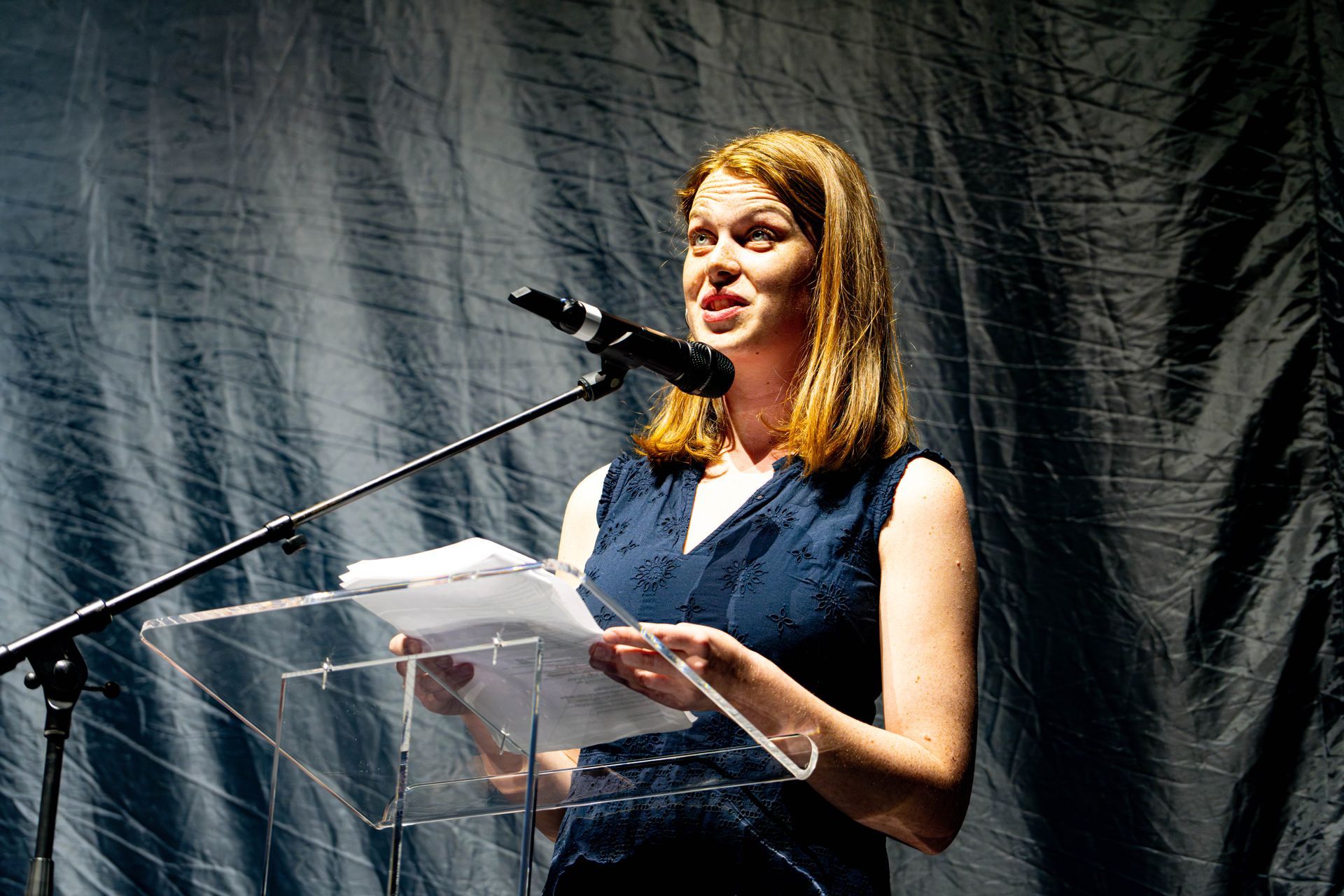
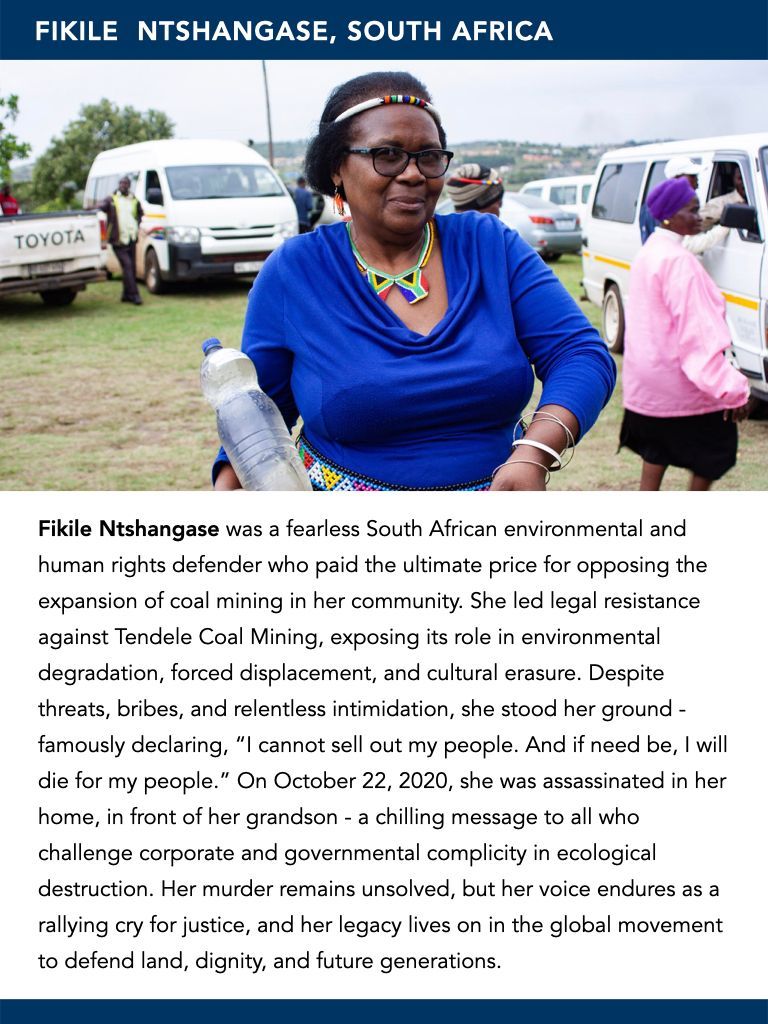
The story of Juan López, a “Climate Champion” from Honduras
THE STRUGGLE CONTINUES by Ignasi Vidal
Reading by Steve Hay
The story of Juan López, woven from the fibers of Christian faith and the lived experience of the Honduran peasantry, and nourished by the ancestral wisdom of the Maya-Chortí people, is a song of human resilience and a cry for social justice. Born in El Naranjito, Copán, on the border with Guatemala, Juan embodied the fight for dignity from a young age, fully aware that the inequalities his community endured were the result of an unjust system, dominated by elites indifferent to the suffering of the majority.
His struggle was not an act of rebellion, but a deep commitment that led him to train within social, religious, and community organizations. A tireless student, he delved into disciplines such as politics, philosophy, pedagogy, theology, and economics, seeing each encounter as an opportunity to share and challenge ideas. Truth, to him, was a supreme value whose defense was an inescapable duty.
He lived with humility and coherence, acting according to his principles. His Christian faith drove him to help build the Kingdom of God among all, with courage and dedication. Calm and clear in his ideas, he avoided violent confrontation and disarmed his adversaries with thoughtful and inclusive arguments: “Our ideas must be our weapons,” he would say, convinced that education was the key to understanding.
Juan believed in change from the bottom up—from those who suffer toward those who dominate. He was critical of NGOs, due to their potential to divide communities and replicate capitalist structures. “We are all defenders,” he affirmed with conviction.
The 2009 coup d’état and the rise of the extractivist model in the Aguán region reignited his struggle. He publicly denounced drug traffickers leading mining projects and helped organize resistance alongside the Municipal Committee for Common and Public Goods of Tocoa. The defense of water, land, and territory became his priority, facing the imminent threat of destructive mining. “There is no more time,” he said.
This stance exposed him to threats and persecution. He was watched, defamed, and finally criminalized in 2019 after the peaceful occupation of Tocoa’s municipal offices, protesting the contamination of the San Pedro River. He voluntarily turned himself in, trusting in justice, but he was imprisoned and held in maximum security for 13 days, treated like a criminal. Even under those conditions, he found fraternity among the inmates, whom he called “my brothers.” His spirit remained unbroken: he reaffirmed his commitment to justice, always responding with moderation to campaigns of hate and defamation.
The year 2024 marked the most painful moment: Juan was shot and killed as he left church in the Fabio Ochoa neighborhood on September 14, around 8 p.m. Although the suspected hitmen were arrested, the intellectual authors were never prosecuted. His assassination was condemned by the Inter-American Court of Human Rights, by social, political, and religious organizations, by Pope Francis, and the United Nations.
His bravery was honored with a nomination for the Sakharov Prize for Freedom of Thought.
Juan López—delegate of the Word of God, educator, peasant leader, defender of the land, tireless activist, and man of faith—is remembered as a beacon of hope, faith, justice, and integrity. His legacy lives on and inspires new generations who dream of a more just world. His memory lights the path toward dignity in Honduras, in Latin America, and across the world.
